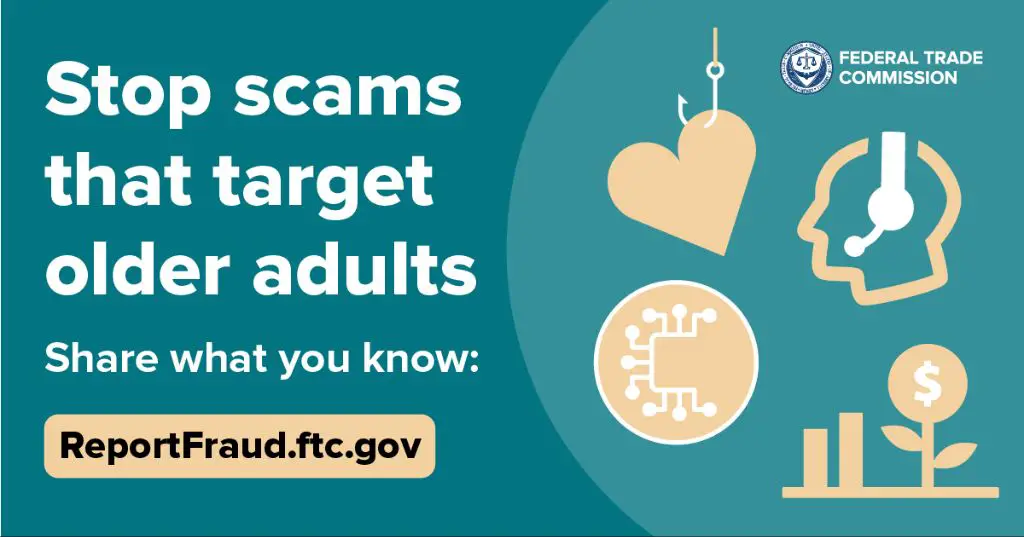Online scams have become increasingly common in recent years. According to the Federal Trade Commission (FTC), consumers reported losing nearly $8.8 billion to fraud in 2022, with a median individual loss of $500 (https://www.aarp.org/money/scams-fraud/info-2023/ftc-consumer-losses.html). While the number of scam reports was down compared to 2021, individual losses were much higher. Scams are perpetrated through a variety of channels, but social media has become one of the most prevalent sources. Americans reported over $2.7 billion in losses just from social media scams in 2022 (https://www.cbsnews.com/news/online-fraud-losses-detection-social-media/). Scams affect people of all ages and demographics.
Common Scams
One of the most common scams today is the romance scam, in which scammers prey on people looking for love and companionship online. According to statistics, romance scams resulted in losses of over $1.3 billion in the US in 2022 alone (https://www.comparitech.com/blog/information-security/romance-scam-statistics/). Both men and women can fall victim to romance scams, although women tend to file more reports while men report higher financial losses (https://whatismyipaddress.com/romance-scam-statistics-world-romance-scam-prevention-day).

Romance scammers create fake profiles on dating sites and apps, build trust with their victims over weeks or months, and then ask for money for claimed emergencies, travel to meet, or other made-up reasons. The scammers often claim to be overseas professionals like military personnel, doctors, engineers, etc. to explain why they cannot meet in person. Once money is sent, the scammers disappear or continue inventing new reasons to send more funds.
According to the FBI, romance scams cost victims a median loss of $2,600 and resulted in losses over $1 billion in 2021 (FBI 2021 Internet Crime Report). As online dating grows in popularity, romance scams are increasing as well. Awareness, caution, and not sending money to online love interests you haven’t met in person are key to avoiding becoming victimized.
Common Scams
One of the most common scams today is the tech support scam. This involves a scammer contacting victims and claiming to be from a well-known technology company like Microsoft or Apple. The scammer will say there are issues detected on the victim’s computer that require immediate tech support to fix. Of course, this is a lie designed to gain remote access to the victim’s computer and steal personal and financial information.
According to a report from Surfshark, tech support scam cases reached record numbers in 2022, with around 89 victims per day and over 32,000 victims for the year (https://surfshark.com/research/data-breach-impact/crime-tech-support-fraud). Older adults are disproportionately targeted, accounting for half of all tech support scam reports in 2022 according to the FTC (https://www.ftc.gov/system/files/attachments/blog_posts/Older%20adults%20hardest%20hit%20by%20tech%20support%20scams/tech_support_spotlight_march2019.pdf).
The scammers often use robocalls or pop-up messages to reach victims. Once granted access, they can install malware, steal personal information, or charge exorbitant fees for unnecessary “services.” These scams have extracted millions of dollars from unsuspecting victims.
Common Scams
One of the most prevalent scams is employment scams, where a scammer impersonates a legitimate company and posts fake job advertisements to lure victims. According to research, the most frequent targets for employment scams have been the oil and gas industry (MyCERT, 2013).
In these scams, applicants receive a convincingly forged offer letter and are tricked into paying various fees upfront for “administrative costs”, “taxes”, or “compliance certificates” (CyberSecurity Malaysia, 2013). The scammers may even conduct fake online interviews to appear more legitimate.
Statistics from 2011 to 2013 showed the majority of job scams revolved around a prominent oil and gas company in Malaysia (MyCERT, 2013). Job seekers should thoroughly verify any recruitment communication and be wary of requests for upfront payments.
Reporting Scams
If you believe you have been the victim of a scam, it’s important to report it to the proper authorities. There are several ways to report a scam depending on the type and circumstances:
You can report scams to the following government agencies:
- Federal Trade Commission (FTC) – Report fraud at FTC Complaint Assistant or call 1-877-FTC-HELP.
- Internet Crime Complaint Center (IC3) – Report internet-related scams at IC3.gov.
- U.S. Postal Inspection Service – Report mail fraud by calling 1-877-876-2455 or visiting postalinspectors.uspis.gov.

You can also file a complaint with the police department in the jurisdiction where the scam took place. Provide as much documentation as possible including records of transactions, emails, texts, shipping information, etc. If the scammer is located out of state or internationally, the police can coordinate with the appropriate agencies.
Some additional resources for reporting scams:
- USA.gov Scam Reporting Tool – Report and get advice on different scam types at USA.gov/scams.
- FBI Internet Crime Complaint Center – Report cyber scams and crimes at IC3.gov.
The more scams that get reported, the more aware consumers and the authorities can be in spotting and stopping these criminal operations. By taking action and reporting scams, you can help prevent others from falling victim.
Investigating Scams
Police face several challenges when investigating online scams. One major challenge is that cybercriminals are often able to hide their identities and locations using technical means like proxy servers or VPNs (https://www.unodc.org/e4j/zh/cybercrime/module-5/key-issues/obstacles-to-cybercrime-investigations.html). This can make it extremely difficult for law enforcement to track down the perpetrators.
Another challenge is that scams frequently cross multiple jurisdictions, even international borders. Coordinating investigations across agencies and countries with different laws and procedures can slow down the process significantly (https://www.linkedin.com/pulse/online-scams-challanges-solutions-adv-bhagat-singh-sharma/).
The technical expertise required to trace cybercriminals online and gather digital evidence is also a roadblock for many police departments with limited resources and training in this area (https://www.securitymagazine.com/blogs/14-security-blog/post/97382-6-e-commerce-cyber-fraud-challenges-in-2022). Specialized cybercrime units are needed to properly investigate these types of crimes.

Finally, the sheer volume of reports makes triaging and prioritizing scams difficult. Police have to balance scam investigations with other crimes, and often lack the bandwidth to pursue every single case.
Prosecuting Scammers
Bringing scammers to justice can be challenging, especially when they operate across international borders. According to an article by The New Zealand Herald, “Tracking and prosecuting international scammers – who are fleecing gullible Kiwis of an estimated $400 million a year – has become increasingly difficult” (Source). Jurisdictional issues arise when crimes occur across multiple countries, making it unclear which laws apply and who has authority to investigate and prosecute.
An article on Medium highlights these difficulties: “The Difficulties of Prosecuting International Scammers. Difficulty tracking down scammers located overseas; Jurisdictional issues prosecuting crimes across national borders” (Source). International cooperation between law enforcement agencies is critical, but not always straightforward. Scammers often operate anonymously online and conceal their locations and identities.
While prosecuting scammers globally remains challenging, increased public awareness, consumer education, and vigilance can help curb their activities. Domestically, law enforcement agencies are working to crack down on scams through sting operations, financial tracking, and criminal charges when possible.
Prevention
There are several tips that can help you avoid falling victim to scams:
Be suspicious of any unsolicited communication asking for personal information or money, whether it’s over the phone, by email, or by text. Legitimate companies will not contact you out of the blue requesting sensitive information. If something seems suspicious, hang up the phone or do not respond.
Never send money or give out personal information to someone you don’t know and trust. Scammers will often pose as government organizations, family members in need, or businesses claiming you owe money. Verify a situation first before sending any money.
Don’t click on links or open attachments in unsolicited emails, texts, or social media messages. This could download malware onto your device or take you to a malicious website designed to steal your information.
Use strong and unique passwords for all your online accounts. Enable two-factor authentication when available. This makes it much harder for scammers to gain access. Check your bank and credit card statements regularly for any unauthorized activity.
Be wary of inflated claims, time-limited offers, guaranteed winnings, or requests to pay by wire transfer, gift card, or cryptocurrency. These are all common red flags of a scam.
Only download apps from official app stores like Google Play and the App Store. Check app ratings and reviews before installing. Grant apps the minimum permissions necessary.
Do your research before making any large purchases, donations, investments, or business deals. Scammers often impersonate legitimate organizations.
If you suspect a scam, immediately stop all contact. Report the incident to the appropriate authorities. Potential targets who avoid engagement can help curb scammer persistence.
Outlook
There are some promising new laws and technologies on the horizon that may aid law enforcement in catching and prosecuting online scammers in the future:
The Cybercrime Support Network Act, if passed, would create teams to help law enforcement investigate complex cybercrimes like online scams. It would also establish a national resource center on cybercrime [1].

Advancements in forensic analysis tools are making it easier for law enforcement to track cryptocurrency payments used in scams back to scammer wallets and accounts [2].
Artificial intelligence is being developed to detect signs of fraudulent activity online, which could help identify scams and trace them back to their source more quickly.
Heightened information sharing and collaboration between law enforcement agencies, technology companies, and financial institutions can help track down scammers across jurisdictions.
With persistent effort and by leveraging emerging tools, there is hope that law enforcement and cybersecurity experts can continue closing the gaps that allow online scammers to evade capture.
Conclusion
While scammers will always exist in some form, police and law enforcement are continually improving their ability to catch and prosecute online scamming operations. Through increased reporting, collaboration across agencies, public awareness campaigns, and evolving investigative techniques, the fight against scams can be won. Key takeaways for the public include remaining vigilant against phishing attempts and phone scams, immediately reporting any suspected fraud to the proper authorities, and safeguarding personal and financial information online. With vigilance on the part of individuals and dedication from law enforcement, the prevalence and success rate of online scams can be reduced over time.

